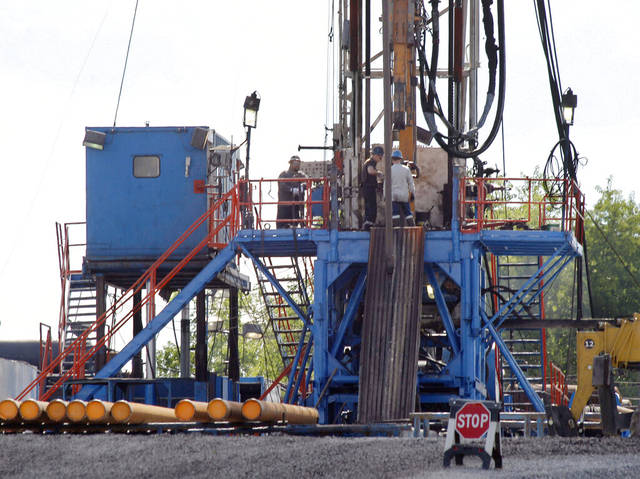Natural gas drilling does not translate to money in the bank for local governments.
In 2020, while prices on items such as hand sanitizer and commodities including lumber went through the roof, other numbers dropped through the floor. One of those was natural gas, which hit a low of $1.66 per million BTUs in June 2020. Couple low prices with low demand during a mild winter, and there was a lot less money to be made in natural gas over the past year.
That was good news for people heating their homes. It was bad news for those depending on the revenue from drilling. On Monday, the Pennsylvania Public Utility Commission announced $146.2 million would be distributed from the previous year’s impact fees. A lot of money? Yes — but a lot less than normal. The 2019 numbers were 31% higher, a difference of $46 million.
Just $71.5 million will go to counties and municipalities, while the rest goes to the Marcellus Legacy Fund, a pool that puts money into projects such as highways and the environment. In Allegheny County, that’s a drop to $1.08 million from $1.58 million. In Westmoreland, the figure falls to $771,895, down from $1.16 million.
At the most local levels, where the money often goes to pay for things such as road paving and anti-skid for winter weather, the decrease might be felt the most. Sewickley Township will get just $129,433, $67,000 less than last year. Derry Township will get $152,275, about $79,000 less.
The problem with that is municipalities have to estimate their fees when setting their budgets in December of the previous year — and can be surprised six months later to find out even conservative estimates are considerably off. Derry Township Supervisor Chairman David Slifka said his board anticipated a decrease and planned for just $184,000 in the 2021 budget. The dramatic drop still will leave the township $32,000 in the hole, possibly pushing it to utilize American Rescue Plan money make retention pond repairs because of the shortfall.
“It’s tighten-your-belt time,” Sewickley Township Chairman Mark Petros said.
But buckling down doesn’t patch potholes.
While many people want to argue the relative merits of impact fees versus severance taxes when it comes to what is better for Pennsylvania communities, a more practical and accessible tweak might be changing the calendar of when impact fees are calculated.
If the numbers were crunched and the announcements made in December instead of June, municipalities could better make accurate budgets that don’t require tightening anyone’s belt.








